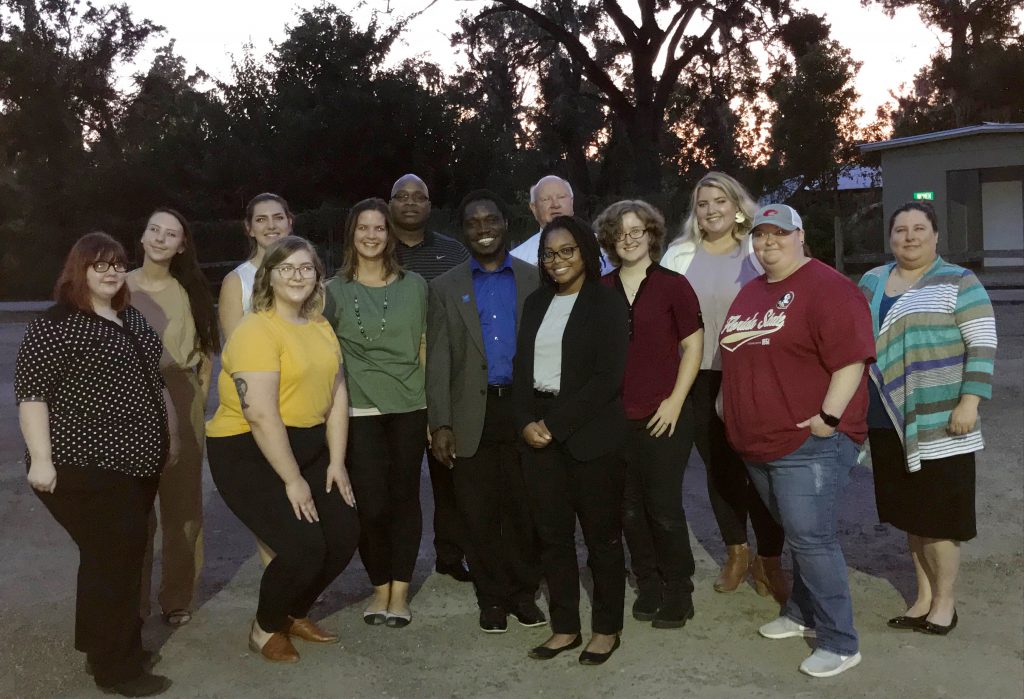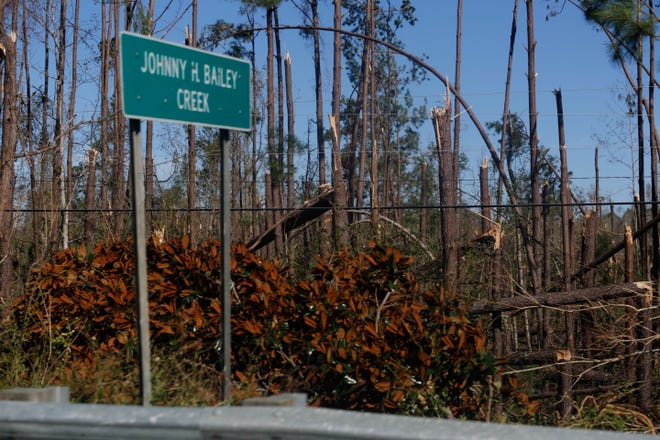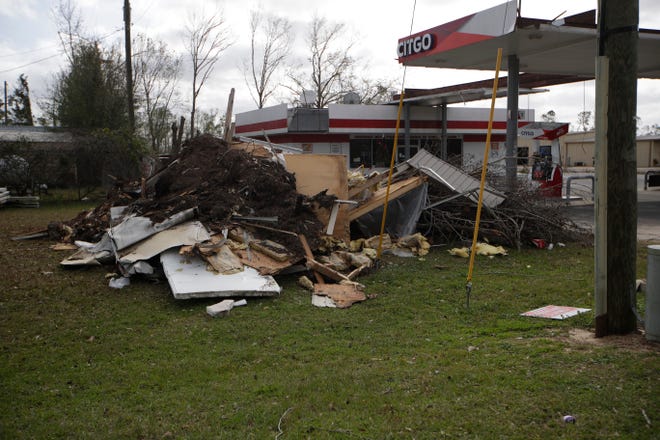
Part 2: Coordinating a response
In October 2018, Hurricane Michael made landfall in the Florida Panhandle as a Category 5 storm, arriving with peak winds of 155 miles per hour and leaving in its wake more than $25 billion in damages. The most impacted communities, many of them rural and with local governments administratively under-staffed relative to the rebuilding task before them, were in critical need of resources to begin the long road to recovery, many forced to rebuild from the ground up.
Representatives from FEMA’s National Disaster Recovery Support (NDRS) cadre coordinated a federal response that included partnering with college and university faculty and students to provide technical planning expertise — a model CRC has also used for recovery from 2016’s Hurricane Matthew. This is Part 2 of a story of how the ongoing work of connecting and coordinating institutions of higher education with under-resourced communities and local governments can improve long-term recovery outcomes. Read Part 1 here.
Fitting projects to partners
“CUPP was integral to our university engagement strategy” in the case of Hurricane Michael, Dr. Scriven said.
Following the initial listening sessions with county and community representatives, Dr. Scriven worked with the Federal partners to whittle the 70 or so project ideas down to 28 projects. Burns, the CUPP manager, reached out to several universities with whom he had worked in the past and then strategized with the FEMA team to initiate contact with several new, potential partners. They were successful in establishing agreements with local and out-of-state universities to partner on eight CUPP projects. Three other projects used a different university engagement model.

Dr. Kwame Owusu-Daaku, an Assistant Professor of Earth and Environmental Sciences at UWF, was one of the first university partners to join the recovery efforts. Dr. Owusu-Daaku had worked with EPA Region 4 and the CUPP program on environmental research projects in the past. Once he was contacted by Burns to assist with the Florida Panhandle, he saw an opportunity to engage his students in service.
“Hurricane Michael missed Pensacola [where UWF is based] by a hair’s breadth, but many of the cities to our east such as Panama City and Panama City Beach were heavily impacted,” Dr. Owusu-Daaku said.
During the fall 2019 semester, he taught many students who came from or lived near towns that were impacted by Hurricane Michael. Few of these students had experienced direct impacts, he said, but many of them spoke of how members of their communities were suffering under the burden of damage and loss and, in many cases, were still struggling months later to get back on their feet. The UWF team would focus on assessing the current housing stock in Calhoun County, focusing on the key demographic groups in need of affordable housing as the community rebuilt from Hurricane Michael.

Calhoun County: Safe, Affordable and Sustainable Housing
Calhoun County was one of those deeply impacted areas. Located in the northwest region of the Florida Panhandle, the area is primarily rural with a population of just under 15,000. Many residents, especially those who are older or low-income, could not afford to rebuild or repair housing which had been severely damaged from hurricane-induced flooding and flying debris from the high-speed winds. The county wanted to use its state-allocated funds to purchase land and build affordable housing, but they first needed to better understand the needs. Dr. Owusu-Daaku and his students agreed to do a county-level housing assessment.
Following a call from CUPP and FEMA, Dr. Owusu-Daaku loaded his 15 students into a university van and a couple of cars. The UWF team made the 2.5-hour drive from Pensacola to Blountstown to participate in a Board of Commissioners meeting and to tour the district. Since several students had early morning classes and part-time jobs, the team could not stay overnight, so they made the drive back to Pensacola that same evening. Gene Bailey and Scott Monlyn gave the UWF students and faculty, and federal partners, a tour of the county post-hurricane. The trip proved eye-opening.
“They showed us the condition of some of those neighborhoods where people were living in houses with rotting floors because of the rain-induced flooding (they got a lot of flooding from the Apalachicola River),” Dr. Scriven said. “One of the things that he [Gene Bailey] said was, ‘I thank you for helping us think through this because we want to get it right.’”
Recovery would require some time.
“They offered some assistance about how to put Calhoun County back together,” Monlyn said. “They took pictures and notes, then rode along and saw the devastation afterward, how hard it was to repair and put houses back together.”

Bridget Ellis, at the time a graduate student at UWF who worked on the Calhoun County project, said seeing the damage in Calhoun County and the long road to recovery made a large impact.
“To see how impactful a hurricane could be to both natural and populated areas was immeasurably shocking,” Ellis said. “Recovery is still ongoing and help is still needed, even if we don’t always hear about.”
She became involved in the work as a part of the course curriculum for Dr. Owusu-Daaku’s Urban Planning course at UWF. Students divided into groups and selected a topic for a housing needs assessment; she joined the group that addressed public outreach and education.
“I selected this topic because I was interested in how this related to hurricane recovery and housing needs,” she said.
